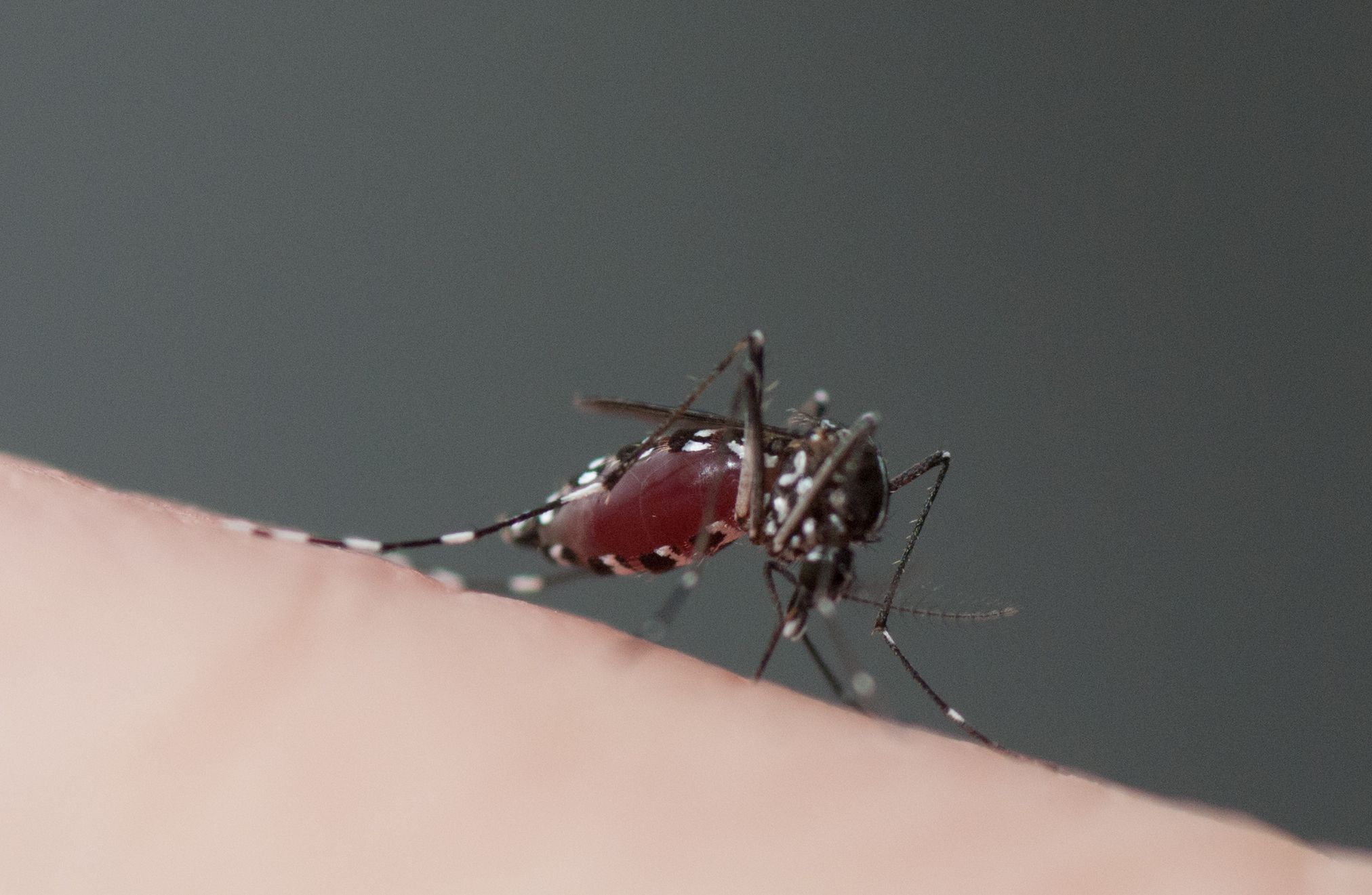Description
Material provided: Whole mosquitoes, dissected tissues, or extracts
Unit definition: 50 infected females (25 if dissected) supplied as 100 fully-engorged females with infection prevalence at least 50%
Vector information
Family: Culicidae
Genus: Aedes
Species: Aedes albopictus
Strain Name: ALPROV
Place of origin: La Providence, Saint-Denis, La Réunion
Date of colonisation: 2010
Virus information
Pathogen used for infection: Chikungunya virus
Reference: 06.21
ICTV Taxonomy: ssRNA+, Alphavirus, Togaviridae
Virus name: Chikungunya virus
Strain: La Réunion
Sequencing: Accession number AM258992
Infectivity: Infectivity tested and quantified
Mycoplasmic content: Mycoplasma free
Production protocol
11-week-old females are fed on an infectious blood-meal using the Hemotek® system. The titer of infectious blood-meals is 107 PFU/mL. After the infectious blood-meal, engorged females are transferred to small containers and fed with 10% sucrose in a chamber maintained at 28°±1°C, a 16h: 8h light: dark cycle and 80% humidity until day 7 post-infection.
Product options
Please specify in your request:
Time post-infection: Please specify one time point in days post-infection (dpi) to harvest the samples. The most common options are primary midgut infection (3 dpi) or disseminated infection (7 or 14 dpi), but other times are possible by request, contact us.
Whole or dissected: Instead of 50 whole mosquitoes, material can be supplied from dissected material harvested at the appropriate time point: 25 dissected midguts or 25 dissected salivary glands or 25 dissected ovaries, provided with the corresponding carcasses.
Form of material:
- Whole mosquitoes or dissected tissues, fixed in 70% ethanol, formalin, or other fixative validated for virus inactivation: useful for DNA extraction from 70% ethanol, immunohistochemistry, not useful for RNA experiments or proteomics. Shipped as non-infectious material.
- Whole mosquitoes or dissected tissues, homogenised in a lysis buffer such as Trizol validated for virus inactivation: useful for RNA, DNA and protein experiments. Shipped as non-infectious material.
- Whole mosquitoes or dissected tissues, frozen at -80°C or stored in RNALater that do not efficiently inactivate virus: useful for RNA, DNA and protein experiments. Shipped as infectious material.
- Other formats or preparations may be possible by request, contact us.
Production conditions: Material is generated using default virus dose and incubation temperature used by the supplying facility. Other conditions may be possible upon request, contact us.
Sample size and replicates: For larger sample sizes, request more units. If requesting multiple units, please clearly specify the purpose (biological replicates, larger sample size, or other). Biological replicates (e.g., for RNAseq transcriptional profiling experiments) require independent infections, while a larger sample size of the same material requires infecting additional mosquitoes on the same infectious blood.
Publications
- Zouache K, Fontaine A, Vega-Rua A, Mousson L, Thiberge JM, Lourenco-De-Oliveira R, Caro V, Lambrechts L, Failloux AB (2014) Three-way interactions between mosquito population, viral strain and temperature underlying chikungunya virus transmission potential. Proceedings Biological sciences / The Royal Society 281(1792).
- Schuffenecker I, Iteman I, Michault A, et al. (2006) Genome microevolution of Chikungunya viruses causing the Indian Ocean outbreak. PLoS Medicine, 3, e263.
For more information, please contact us.

